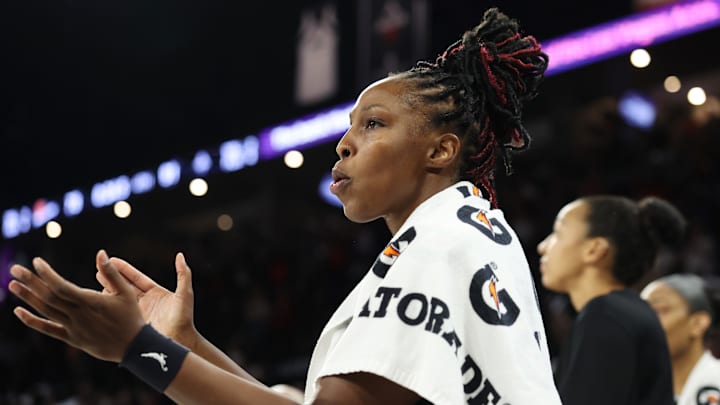The WNBA is currently mired in what could well prove to be the most pivotal moment in the league's 30+ year history, a potentially historic moment that NBA Commissioner Adam Silver described as "growing pains" this week.
Silver's woefully inadequate characterization came during a stop at NBC Sports headquarters on Monday, October 6. While acknowledging the growing discord between WNBA Commissioner Cathy Engelbert, who was appointed to the role in May 2019, and the players in the league, Silver attempted to play both sides.
"Cathy Englebert has presided over historic growth in the league, but there's no question that there's issues we need to address with our players," he said. "They're not just economic. There's relationship issues, as well. I'm confident we can fix those over time, and this league can continue to be on the rocket trajectory that it's on right now."
Adam Silver needs to take a hard look in the mirror, too
Silver's comments were likely intentionally vague, and that's for a few key reasons. It's fair to assume Silver isn't interested in wading too far into a public and messy battle, especially as the WNBA Finals are still very much being played and the focus should be on what happens between the Mercury and the Aces this week — but that doesn't mean he doesn't have a responsibility to do so anyway.
The 2025 season has been dominated by talks of the CBA negotiations and an apparent growing divide between W leadership and athletes, but these conversations didn't begin this year — there are just more people paying attention, more fans are invested, and players feel more comfortable advocating for themselves. The problems that are simmering over the top of the pot have been growing for years; WNBA players have never been paid what they should have been, have historically not had the opportunity to attract the fans they deserve, and a lot of the blame for that can be put squarely on the shoulders of the NBA.
Silver wasn't in charge when the WNBA was started, but he's the one in charge now. It's important to constantly, consistently keep in mind that the NBA owns 42% of the league, and that number balloons to 60% when the investments of NBA owners are factored in. At the end of the day, the fight of the players and the WNBPA is no different from any union issue that has played out.
Yes, what the WNBA is experiencing right now is an organic extension of the growth that has dominated the league the last few years — but writing off that fight as "growing pains" dismisses the power and potential the players who are both the humans on the court and the product that keeps the league moving have, and it's a characterization Silver may have made at his own peril.
